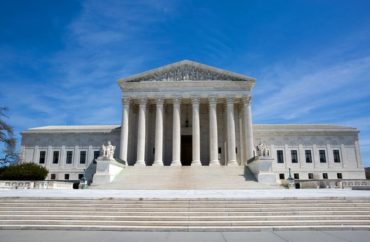
The Supreme Court is scheduled to hear oral arguments this month in a case brought on by Students for Fair Admissions, which is taking on Harvard’s and the University of North Carolina’s admissions practices, alleging they discriminate against high-performing Asian American applicants to create a diverse campus environment.
Ahead of the hearing, The New Criterion has pulled together pieces by some of the best conservative and center-right legal minds in the nation to discuss what it all means, what’s at stake — and what could transpire if the practice is eventually ruled unconstitutional.
“Adjudicating the racial racket: Introducing ‘Affirmative action and the law: a symposium,'” includes a piece by University of San Diego Law School Professor Gail Heriot, a member of the U.S. Commission on Civil Rights, who argued even if the Supreme Court rules against race as an admissions standard, universities will still find a way to use it.
“It would be naive to expect them to stop simply because the Supreme Court finally gets around to recognizing that this kind of race discrimination is illegal,” Heriot wrote. “They will either continue exactly as before or switch to an admissions policy that is facially race-neutral but in fact intricately engineered to produce their desired racial result.”
Another essay is on the consequences of racial preferences. Penned by University of Tennessee College of Law Professor Glenn Harlan Reynolds, he pointed out that so goes Harvard, so goes the nation.
“There is no basis for this immunity in the Constitution; it’s simply a doctrine made up out of whole judicial cloth because courts don’t want to hear these kinds of suits. But eliminating it would place both elected and unelected officials under considerably more pressure to follow the Constitution and the law,” Reynolds wrote.
John Yoo, a professor of law at UC Berkeley and a visiting fellow at Stanford’s Hoover Institution, co-authored a column with Wen Fa, a senior attorney at Pacific Legal Foundation, to zero in on the hope that the “Supreme Court’s misbegotten acceptance of express racial preferences in higher education” is near an end:
The Court has steadily banned racial discrimination in almost every other part of public life. In Brown v. Board of Education (1954), the Court dismantled the pernicious government policy of operating segregated schools. It recited the arguments from the advocates for Oliver Brown, who pressed the “fundamental contention” that “no State has any authority under the equal-protection clause of the Fourteenth Amendment to use race as a factor in affording educational opportunities among its citizens.” In Palmore v. Sidoti (1984), the Court held that the equal-protection clause banned the consideration of race in child-custody decisions. It reasoned that racial classifications were pernicious because they prioritize the collective over the individual: “[T]he race, not the person, dictates the category.” Next, the Court invalidated the use of race in government employment decisions in Wygant v. Jackson Board of Education (1986). It rejected the notion that an interest in remedying societal discrimination was sufficient to justify racial classifications. As the plurality noted, a contrary holding would have allowed government to use race to adopt “remedies that are ageless in their reach into the past, and timeless in their ability to affect the future.”
The New Criterion editor Roger Kimball summarizes the symposium by pointing out the perniciousness of the practice.
“Time and again, the rhetoric of equality is deployed as a smokescreen to pursue ends that are patently inequitable. In the beginning affirmative action was undertaken in the name of equality. But, as always seems to happen, it soon fell prey to the Orwellian logic by which the principle that ‘All animals are equal’ gives birth to the transformative if contradictory codicil: ‘but some animals are more equal than others,'” Kimball wrote.
“Affirmative action is Orwellian in a linguistic sense, too, since what announces itself as an initiative to promote equality winds up enforcing discrimination precisely on the grounds that it was meant to overcome,” he wrote. “Thus we are treated to the delicious, though alarming, contradiction of college applications that declare their commitment to evaluate candidates ‘without regard to race, gender, religion, ethnicity, or national origin’ on page 1 and then helpfully inform you on page 2 that it is to your advantage to mention if you belong to any of the following designated victim groups.”
Read the entire “Affirmative action and the law: a symposium” here.
IMAGE: Steven Frame / Shutterstock
Like The College Fix on Facebook / Follow us on Twitter




Add to the Discussion